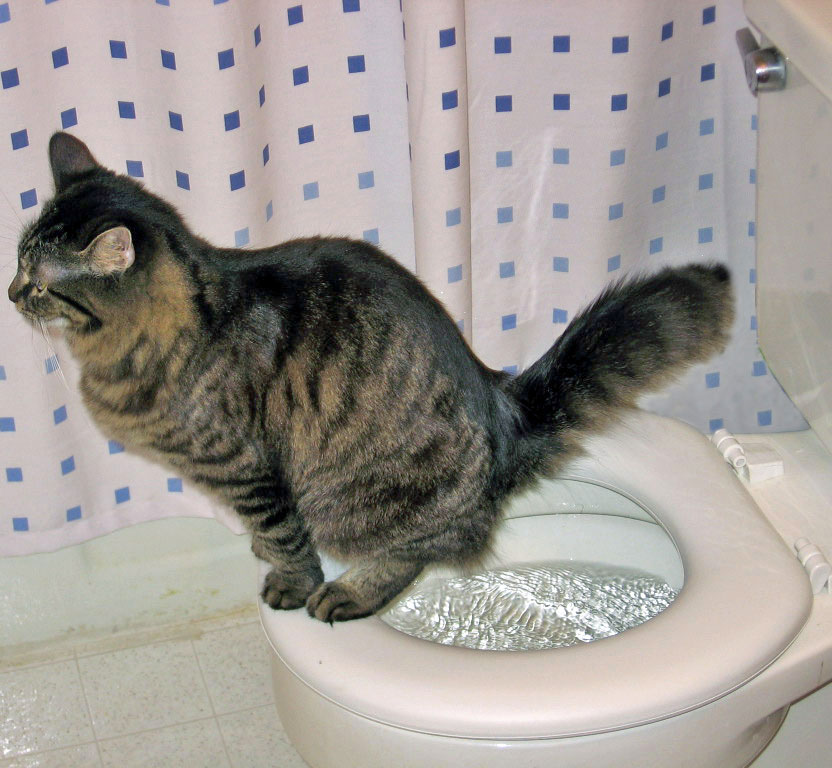Why You Mustn't Flush Cat Poop Down Your Toilet - Preserve Your Plumbing Health
Why You Mustn't Flush Cat Poop Down Your Toilet - Preserve Your Plumbing Health
Blog Article
The content down below pertaining to Can You Flush Cat Poop Down The Toilet? is exceedingly engaging. Don't miss out on it.

Introduction
As cat owners, it's vital to bear in mind exactly how we take care of our feline friends' waste. While it may seem hassle-free to flush cat poop down the bathroom, this method can have destructive repercussions for both the setting and human health and wellness.
Alternatives to Flushing
Thankfully, there are safer and extra liable means to take care of feline poop. Consider the complying with alternatives:
1. Scoop and Dispose in Trash
One of the most common method of disposing of cat poop is to scoop it into a naturally degradable bag and throw it in the garbage. Make certain to use a dedicated litter scoop and take care of the waste immediately.
2. Use Biodegradable Litter
Choose biodegradable cat litter made from products such as corn or wheat. These trashes are environmentally friendly and can be safely dealt with in the trash.
3. Bury in the Yard
If you have a yard, think about burying cat waste in a marked location away from veggie yards and water resources. Be sure to dig deep adequate to prevent contamination of groundwater.
4. Install a Pet Waste Disposal System
Invest in an animal waste disposal system particularly developed for feline waste. These systems make use of enzymes to break down the waste, reducing odor and environmental impact.
Health Risks
Along with ecological problems, purging cat waste can likewise present health threats to people. Pet cat feces may contain Toxoplasma gondii, a parasite that can cause toxoplasmosis-- a possibly serious illness, particularly for expecting women and people with damaged body immune systems.
Environmental Impact
Flushing feline poop presents unsafe pathogens and parasites into the water, posing a significant danger to marine communities. These contaminants can adversely influence aquatic life and concession water top quality.
Final thought
Accountable family pet ownership extends beyond giving food and shelter-- it additionally includes correct waste monitoring. By avoiding flushing feline poop down the toilet and opting for different disposal techniques, we can lessen our environmental footprint and secure human health and wellness.
Why Can’t I Flush Cat Poop?
It Spreads a Parasite
Cats are frequently infected with a parasite called toxoplasma gondii. The parasite causes an infection called toxoplasmosis. It is usually harmless to cats. The parasite only uses cat poop as a host for its eggs. Otherwise, the cat’s immune system usually keeps the infection at low enough levels to maintain its own health. But it does not stop the develop of eggs. These eggs are tiny and surprisingly tough. They may survive for a year before they begin to grow. But that’s the problem.
Our wastewater system is not designed to deal with toxoplasmosis eggs. Instead, most eggs will flush from your toilet into sewers and wastewater management plants. After the sewage is treated for many other harmful things in it, it is typically released into local rivers, lakes, or oceans. Here, the toxoplasmosis eggs can find new hosts, including starfish, crabs, otters, and many other wildlife. For many, this is a significant risk to their health. Toxoplasmosis can also end up infecting water sources that are important for agriculture, which means our deer, pigs, and sheep can get infected too.
Is There Risk to Humans?
There can be a risk to human life from flushing cat poop down the toilet. If you do so, the parasites from your cat’s poop can end up in shellfish, game animals, or livestock. If this meat is then served raw or undercooked, the people who eat it can get sick.
In fact, according to the CDC, 40 million people in the United States are infected with toxoplasma gondii. They get it from exposure to infected seafood, or from some kind of cat poop contamination, like drinking from a stream that is contaminated or touching anything that has come into contact with cat poop. That includes just cleaning a cat litter box.
Most people who get infected with these parasites will not develop any symptoms. However, for pregnant women or for those with compromised immune systems, the parasite can cause severe health problems.
How to Handle Cat Poop
The best way to handle cat poop is actually to clean the box more often. The eggs that the parasite sheds will not become active until one to five days after the cat poops. That means that if you clean daily, you’re much less likely to come into direct contact with infectious eggs.
That said, always dispose of cat poop in the garbage and not down the toilet. Wash your hands before and after you clean the litter box, and bring the bag of poop right outside to your garbage bins.
https://trenchlesssolutionsusa.com/why-cant-i-flush-cat-poop/

I stumbled upon that page on Don’t flush cat feces down the toilet when doing a lookup on the web. Sharing is caring. One never knows, you may very well be doing someone a favor. Thank-you for going through it.
Book An Appointment Report this page